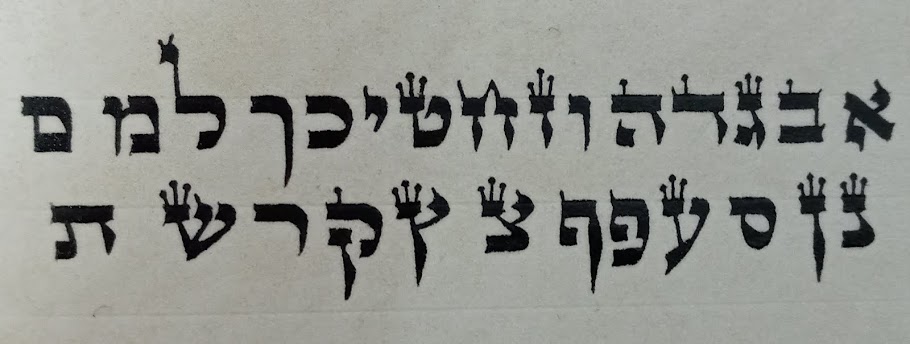Words from, Rejoice O Youth! by Rav Avigdor Miller zt"l
(whoever reads these words very carefully and thinks about them, will find enough reason and encouragement to begin a whole new life dictated by total Truth and Virtue - blessings, Hazak We'ematz)
The truth is everywhere, but few men are able to see it. This world is a night of darkness; we see nothing, despite the brightness of the daylight. We move all about, all our lives, in a thick fog which conceals from our eyes all the great truths. Out of this heavy, impenetrable mist, murky phantoms loom up before us. Some terrify us, and some lure us on; but all are unreal fantasies fashioned by the fog swirls.
Sometimes the evil inclination conceals from men the fact of G-d's control over their affairs. This is the darkness which causes a man to seem to be a post, and a post to appear to be a man. Men fail to see the real perils, including the waste of their lives, which is a loss never to be regained; but they see only the imaginary forms of happiness, theories of error, and the threat to their economic security. Thus men are affrighted by the phantoms of poverty which the Evil Inclination conjures up and by this means enslaves them to the pursuit of security. For this, they forsake their sole purpose in life, which is the pursuit of Perfection; and they pursue the illusion of security.
Sometimes, for a fleeting moment, the fog lifts, such as when men are about to leave the world, or in times of catastrophe or great excitement. For a brief interval the light appears; but again the mist closes in, and men continue their blind march in the dark.
This universal darkness and error is essential to the World-Plan, and it has been so arranged by the Creator: 'You make darkness, and it becomes night' (Psalms 104:20); 'This refers to this world, which is like the night' (Bava Metzia 83 b). In this blackness, men are led into two errors (Mesillas Yesharim): 1) They fail to see the truth and 2) they believe the imaginary phantoms to be real. Thus, the nations have adored men who were worthless; and they vilified some men of great virtue.
youth: "But why should the Creator permit this force to exist?"sage: "Because it is of the greatest benefit to mankind."youth: "The greatest enemy, which distorts all the truths of life, is the greatest benefit?"sage: "Yes. The purpose of life is to practice Free-Will. G-d does not wish to force men into righteousness, for then the entire plan would be frustrated. But if men were not blinded by the Evil Inclination, they could not avoid seeing the truths. They would recognize G-d from the overwhelming and incontrovertible demonstration of plan-and purpose everywhere in the world,they would recognize Man's role as the sole recipient of G-d's unbounded kindliness, they would understand the end-purpose of the Afterlife, and they would see the true function of life as the pursuit of virtue and Perfection. G-d said: 'No man shall see Me and live' (Shemot 33:20); for such clarity of perception would hamper the Free-Will, without which life would be useless. 'You impose darkness and it is night' (Psalms 104:20). This world has been made dark by G-d, for if men could see the whole Truth, they could no longer act except in accordance with it. Virtue would be as natural as the instinct of self-preservation. It would not be the result of men's Free-Will. The concealing of all these truths creates the ordeal of Free-Will."
Men are so blind that they do not see their own faults, for even the lowest criminals regard themselves as good men. The greatest are sometimes deceived by this darkness. The wise and noble brothers of Joseph considered him a wicked man who deserved to be destroyed, despite the fact that they had seventeen years to observe his behavior. Even our father Issac was unable to discern the wickedness of Esau, who had lived in his house for over sixty years; and he wished to confer the blessings upon him.
Even the physical world is totally concealed from our eyes. By day we see an empty sky; and we forget that huge worlds hover overhead in space. Even at night we are deceived; for unless we look through the giant telescopes, we cannot visualize the vast numbers of the celestial bodies. Without the aid of the microscope, our eyes do not see the teeming millions of bacteria swarming upon our bodies, upon our clothing, and in the air we breathe... Even we, today, are completely unaware of numerous physical phenomena, before our eyes, which will be revealed in later generations. If such ignorance is possible in material things, then how great is the ignorance of men in the non-physical truths!
Rabbotai, we want the whole world to come and pray with us for one day; for on that one day, there will be peace in the entire world! Reb Shlomo Carlebach zt"l

